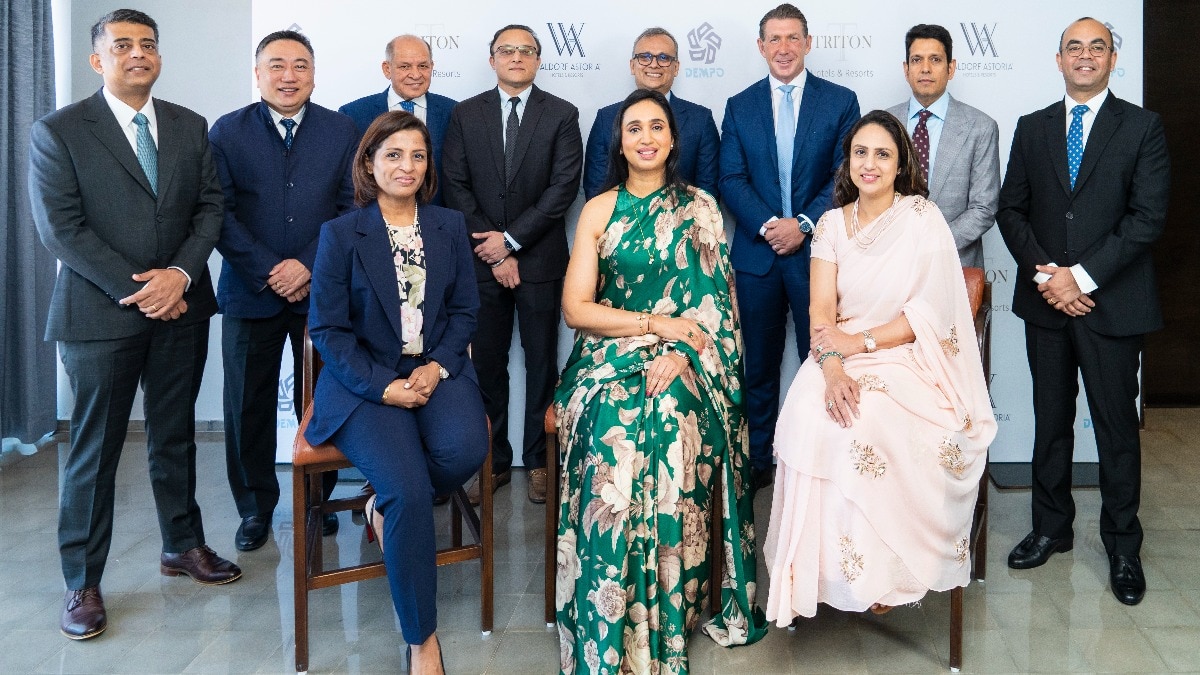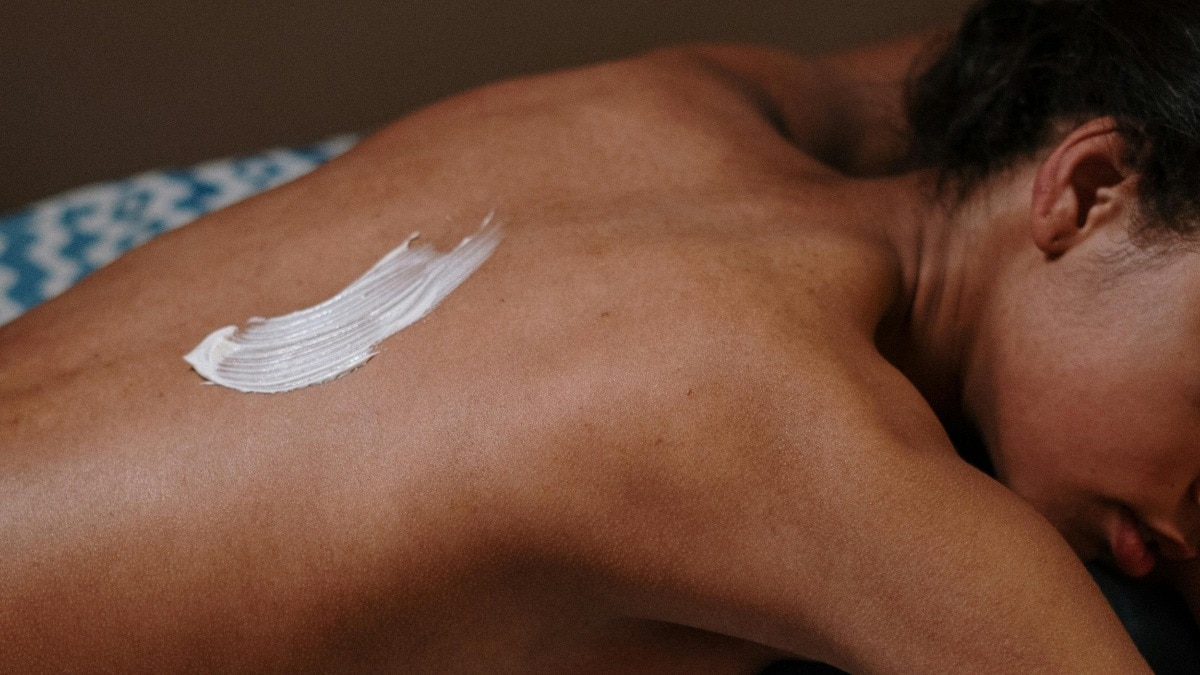
Chef Rahul Akerkar's newest restaurant, Ode, celebrates culinary heritage and his home city, Mumbai
He blows the gaff on what makes a successful restaurant today, a chef’s purpose beyond the menu, and more.


One of the most gifted chefs in the country, chef Rahul Akerkar’s journey in the culinary industry can be traced all the way back to 1999 when he founded Indigo—a restaurant credited with introducing Mumbai to the concept of European fine dining. While it was the beginning of Akerkar’s two-decade-long career, his string of successes continued with Qualia, which unfortunately shut down in August 2021.
Akerkar now applies his culinary skills to his brand new restaurant, Ode, which strays away from a conventional menu and focuses on celebrating food's ability to bring people together. In an exclusive conversation with Harper's Bazaar India, Akerkar delves into his journey post Qualia, the vision behind Ode, the secrets of running a successful restaurant, and more.

Sonal Ved: What are the new rules of being a chef in 2024, where is your heart?
Rahul Akerkar: The first rule of being a chef today is that they should be able to cook and create rather than repackage what has already been done. They should be mindful of their choice of ingredients and should champion local produce while taking cognisance of the way people eat today—their preferences, restrictions, and so on. They also need to collaborate, share, and mentor. As for my heart, it is where it’s always been and the underlying principle has always been the same—I love what I do.
SV: What is the one lesson you learnt with Qualia that helped you improve as a food entrepreneur?
RA: I learnt that no matter how hard you try, things never go as planned. So, focus on what you can control rather than what you cannot. Another absolutely critical lesson for success is being nimble enough to pivot with the changing business environment while staying relevant and viable.
SV: Why is the restaurant called Ode; what is it an ode to?
RA: The restaurant is an ode to food and its ability to unite communities, and the city that loves its food. The name also hints at the menu which is a mix of Indian and European cuisine. I grew up with parents from diverse backgrounds, and our home-cooked meals were a blend of various culinary traditions. Hence I decided to create a narrative of cultural fusion with food that represents a western influence whilst celebrating local flavours and ingredients.
SV: What did your vision board look like when making a skeleton for Ode, were you able to achieve all the checkpoints?
RA: We wanted to build a world-class restaurant that evidently has food at its centre; food that is nuanced and flavour-forward. We also wanted a simple, clean, and warm ambience.

SV: According to you, what is the biggest reason for a restaurant to succeed or fail?
RA: The basics of running a restaurant remain the same—creative food, warm hospitality, and great attention to detail. The only thing that's changed is the way people perceive a restaurant—they look for the complete package. People also seek value in what they spend, regardless of whether it is ₹100 or ₹1,000. When it comes to food, people prefer honest creativity over gimmicks.
SV: Today, there is an expectation that the chef needs to be involved in more than just the menu, what do you feel about this?
RA: Chefs of successful restaurants or successful chefs are more involved in the process. They aren’t just cooks; they are creators, mentors, and business managers who must interact with their diners to help them understand the dining experience that they are trying to create.
SV: In this congested space of chefs doing Indian cuisine and hyper-local Indian food, why are you so far away from the garam masala and likes?
RA: I pick up the garam masala bottle all the time, but in a different way. I grew up eating both Indian and western food at home and learnt cooking by working in restaurants in New York and Italy. Thus, western cuisine is the backbone of what I do, but I also play with Indian flavours and cooking techniques. For example, our pork ribs are slathered in a mole seasoned with a khandeshi kala masala or the tuna loin with a curry leaf and sesame rub is served with an avocado pachadi and pickled beets. The (latter) dish is cooked classically using western methods but still echoes the flavours of India.

SV: Who are some of the younger chefs that you look up to and what have you learnt from them?
RA: There are a couple of them who are really good—Vanika Choudhary, Hussain Shahzad, Prateek Sadhu, Niyati Rao, Varun Tolia, Gresham Fernandes, Alex Sanchez, Thomas Zacharias, Amninder Sandhu, Manu Chandra, Rishad Ginwalla, and of course, Ash Moghe. I see a lot of my younger self in Ash. These chefs are at the vanguard of modern dining in India. They aren’t afraid to cook, make statements or embrace the locavore movement. They are all going to be successful because they collaborate and share; it is genuinely lovely to see how different it is from how things were at my age.
SV: How have you managed to stay relevant through decades of your time in the industry?
RA: I have an open mind and am willing to try and reinvent myself over and over again. But, more than that, I am lucky to be in the right place at the right time. For instance, I believe that Indigo would not have done as well had it opened five years ago. As a chef, you become so immersed in what you’re doing that you go myopic; you fail to see the bigger picture or understand your relevance in the context of the way the world eats out. It's akin to overlooking the forest for a handful of trees. So, you have to take a step back and look at the complete picture. Luckily for me, I’ve been able to disengage from work during periods like the pandemic, which allowed me to escape the day-to-day routine and look at the bigger picture, thus influencing my choices and decisions.










